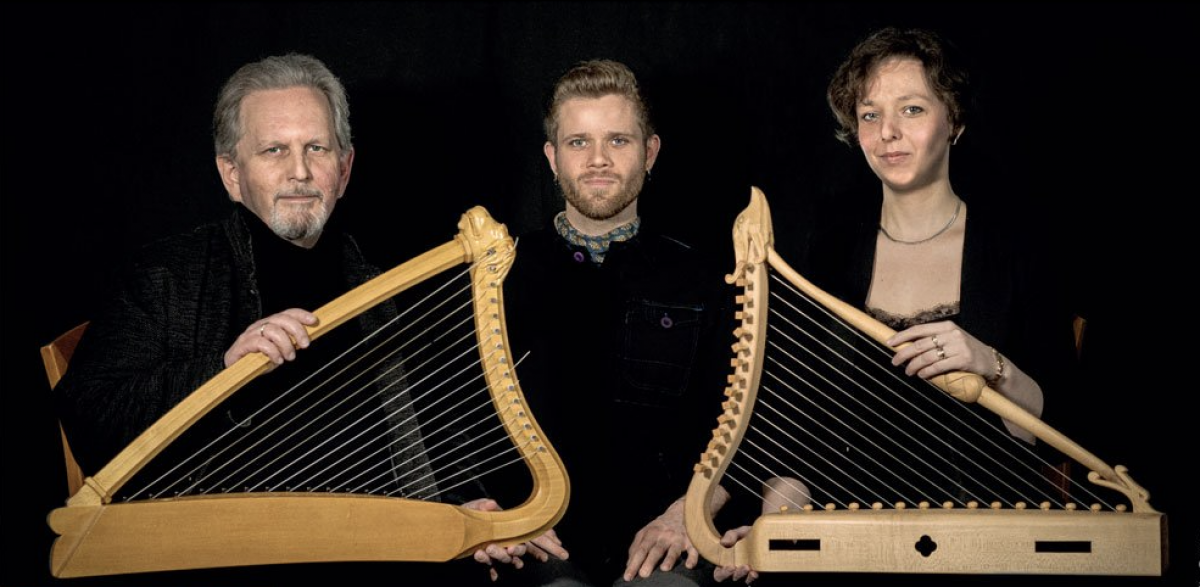Gregorius — The Holy Sinner

Yellow Barn Artist Residency
"Works in Process" Performance
Sequentia
Benjamin Bagby
leiken [Lukas Papenfusscline]
Jasmina Črnčič
Voices and Romanesque harps
Wednesday, January 8
7-8:30pm
The Big Barn, Putney VT
Free Admission | Reservations appreciated
The twelfth century German knight and poet, Hartmann von Aue, relates an astonishing tale of victory over despair. Sequentia performs this premiere reconstruction about a man tossed about by fortune, and unaware of his incestuous origins, who returns from near death to become a great holy man. Hartmann’s ancient tale reaches far into the past, echoing the presence of Oedipus in its darkest moments. At its most inspiring, it is a tale of limitless possibility and inextinguishable hope.
Benjamin Bagby (voice & harp), known for his performance of the"Beowulf" epic, will share a narrator role with Jasmina Črnčič (voice & harp) and leiken Papenfusscline (voice).
On January 8th in the Big Barn, Sequentia offers a special presentation of "Gregorius" before the premiere in New York City. Audience members are invited to stay for a post-concert conversation with the artists.
About the Project
Although the medieval version by Hartmann von Aue survives in multiple text manuscripts, his tale was probably told orally: sung, spoken and accompanied, for courtly gatherings of sophisticated listeners who could never get enough. Sequentia's reconstruction of Hartmann's masterpiece retells this story in the same style that captivated binge-listening courtly audiences in the years around 1200.
As late as the mid-20th century, Hartmann's "Gregorius" inspired the Nobel Prize-winning author Thomas Mann to re-tell the story in modern prose, published under the title of "Der Erwählte" ("The Chosen One") in 1952.
—Benjamin Bagby
About the Artists
Founded by Benjamin Bagby and the late Barbara Thornton, Sequentia can look back on nearly 50 years of international concert tours, performing throughout Europe, North and South America, India, the Middle East, Asia, Africa and Australia. Sequentia has brought to life over seventy innovative concert programmes that encompass the entire spectrum of medieval music, in addition to the creation of music-theater projects such as Hildegard von Bingen’s Ordo Virtutum, the Cividale Planctus Marie, the Bordesholmer Marienklage, and Heinrich von Meissen’s Frauenleich (several of which were filmed for television). The work of the ensemble is divided between a small touring ensemble of vocal and instrumental soloists, and a larger ensemble of voices for the performance of Latin liturgical chant and polyphony. After 25 years based in Cologne, Germany, Sequentia’s home has been in Paris since 2002.
Sequentia has inspired new generations of young performers, trained in professional courses given by Benjamin Bagby and other members of the ensemble. As an extension of this work, Bagby teaches in the masters degree program for medieval music performance practice, which he helped create in 2005 at the Université de Paris – Sorbonne.
